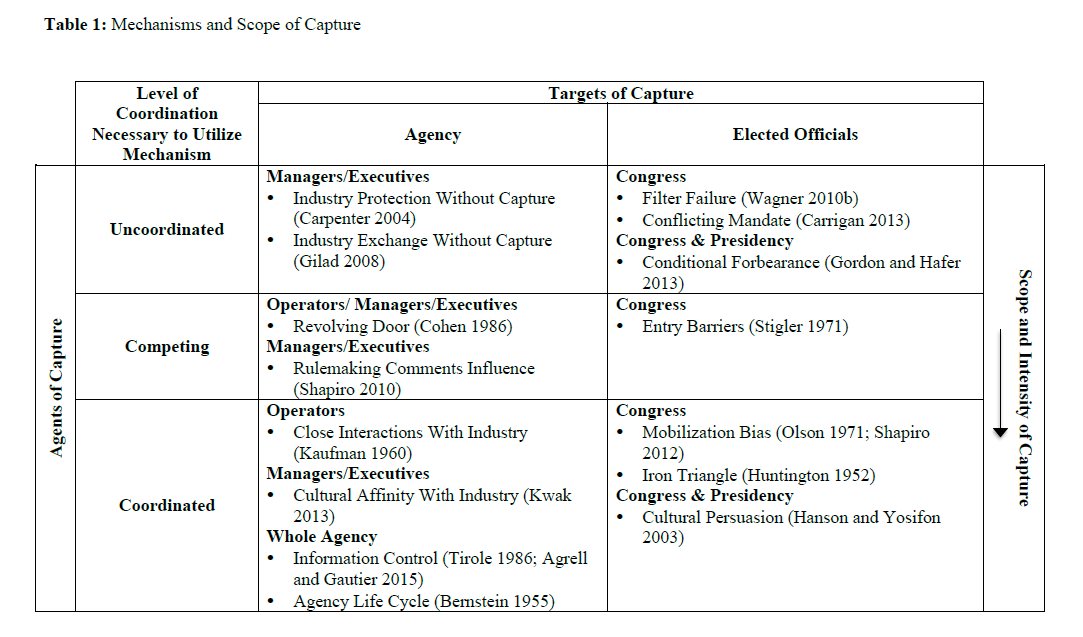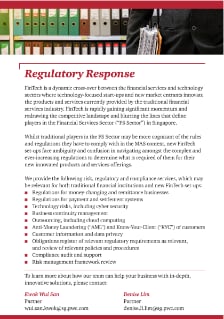

According to Stigler, regulation “as a rule, is acquired by the industry and is designed and operated primarily for its benefit.” Regulation is about controlling market entry. Whereas this view of capture is widely associated with calls for “more” or “better” regulation, the most prominent account of capture, by George Stigler ( ), is directed at regulation per se. One of the standard accusations has been “capture”-the idea that dominant industry interests have succeeded in perverting the intended, public‐interested aims of the regulatory regime, such as public health, systemic industry viability, or environmental safety. Whether it is because of the meltdown of financial institutions, oil spills, electricity blackouts, mining disasters, or contaminated food, regulatory instruments and organizations have been criticized for, among other things, their inaction, their overreach, and their closeness to regulatory industries.

Regulation remains at the front line of political controversy.
#REGULATORY CAPTURE HOW TO#
Moss, eds., Preventing Regulatory Capture: Special Interest Influence and How to Limit It ( New York : Cambridge University Press, 2013 ). This highly partisan conflict overĭaniel Carpenter and David A. Novak A Revisionist History of Regulatory Capture 6 policy prescription of increased political and executive supervision. More broadly, the solution to capture is deregulation.

$70.00 (cloth), ISBN: 9781107036086 $24.99 (paper), ISBN: 9780101070646704. Now, more than two years later, there are questions about the regulatory capture of these agenciesthe term used for a form of corruption in which an independent regulatory agency ends up promoting the interests of an industry, profession, or groupand how regulatory capture may have impacted public health policies that have guided. Regulatory Capture Recaptured Regulatory Capture Recapturedĭaniel Carpenter and David A.


 0 kommentar(er)
0 kommentar(er)
